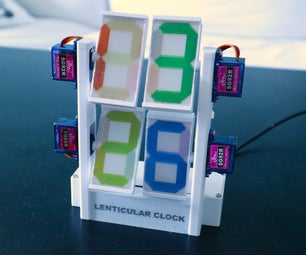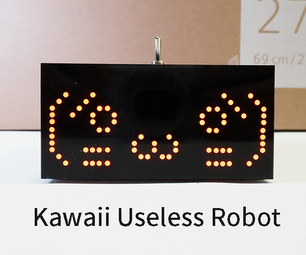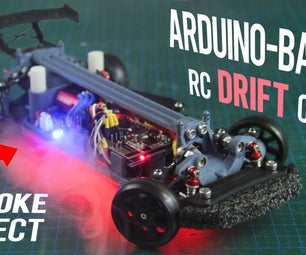Introduction: Budget Light Chaser
Hello, this is my first robot I ever built. I didn't think of recycling old RC car body's at the time, so I ended up making the frame out of cardboard that I formed a T with, and used lots of hot glue for added support.
I couldn't let this old instructable go to the dust so I had to post it, I know its rudimentary and very basic, but this shows where I have started, and will give a good before/after view of my constantly improving robotics skills.
Step 1: Materials / Tools Needed
Required Materials Needed : -Cardboard. -08M2+ / any PICAXE micro-controller. -Breadboard. -2 Servos ( I used modified HXT900's ) -4 AA Battery Holder. (I use rechargeable batteries) -Jumper Wires. -Pipe Cleaners (To hold down the servo). -1 LDR. Optional Additions : -Use 2 LDRs so bot can have better direction(left/right). -Better platform. Tools Needed : -Hot-Glue Gun. -Scissors. -Soldering Iron (for AXE029 assembly). It was my first time modifying a servo, and I thought it was very simple, there are multiple guides online, so I'm not going to reinvent the wheel.
Step 2: AXE 029 Breadboard Adapter
I bought the AXE029 breadboard serial adapter so I could program the PICAXE with ease. It comes in pieces, so you get to solder it together yourself. I had quite a good time soldering it, but I love assembly required stuff. I would highly recommend buying this if you plan on doing a project like this. I personally make all my orders from Sparkfun.com.
Step 3:
Step 4: LDR (Light Dependent Resistor)
They are pretty much a solar resistor, when I first looked for info online about them, it was pretty intimidating, but for how cheap they are I had to give it a try. I feel like they bring a automated feel to the robot by giving a variable that can change at any time(the light resistance)
Step 5: Sturdy Rear Wheel on Axle
I had used a cardboard fin to start(bad idea), it was very picky on what surface it would work on. The fin finally collapsed in, but I had recently scrapped the wheels from an old toy, so I hot glued them on for added traction/support. This would be the step I recommend to use your imagination on.
Step 6: Final Circuit
I plan on adding more here
Step 7: The Code
The code for a PICAXE is very simple to learn, if any of it doesn't make sense I would highly recommend downloading the PICAXE manual part 2 PDF file, it has every keyword your gonna need. Since I used the cheaper 08M2 chip I was limited on my pins that I could use, but I managed to simplify it until it worked. I feel like the code is the heart of a bot, but to save you guys the time it took me to get it at least working, I will post the v.1 of the working script.











